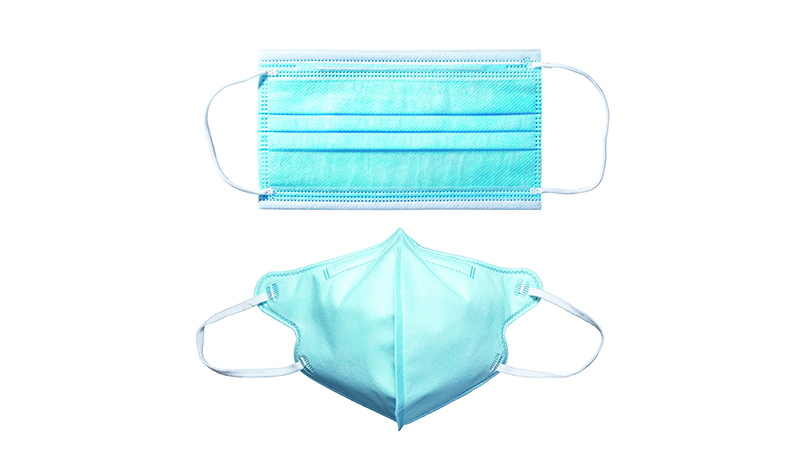Gov. Edwards, LDH update COVID-19 guidance, recommending all Louisianans now wear masks.
Published 7:38 am Saturday, July 24, 2021
|
Getting your Trinity Audio player ready...
|
BATON ROUGE — As COVID-19 cases and hospitalizations continue to rise in Louisiana, and following the designation of Louisiana by the White House as a “state of concern” because of its rapid case growth and insufficient vaccination rate, today Gov. John Bel Edwards and the Louisiana Department of Health issued updated guidance recommending that all people, both vaccinated and unvaccinated, wear masks indoors when at least six feet of distancing is not physically possible during the fourth surge of COVID-19.
Updated LDH guidance on masking, testing for vaccinated people and workplace accommodations is part of Louisiana’s strategy for ending its fourth surge of COVID, alongside increasing its vaccination rate. Additional measures may be announced later if the situation worsens.
“The White House has notified Louisiana that we are a State of Concern because we are the leading edge of the COVID-19 surge, due to the rapid spread of the Delta variant among the unvaccinated in our state. Indeed, Louisiana leads the nation in case growth, with 47 cases per capita. This should come as no surprise to anyone who has watched our case counts and hospitalizations continue to climb, and it necessitates additional guidance for how all people should stay safe in Louisiana right now, including wearing masks indoors, when unable to maintain social distancing, testing after suspected exposure even if they are vaccinated and, if possible, working remotely from home to limit exposure to groups,” Gov. John Bel Edward said. “Right now, Louisiana has the best tool it has ever had to fight this surge: the COVID-19 vaccines. Encouragingly, our weekly vaccination rate has bumped up which I believe means everyone knows how urgent the situation is. We need even more people in our state to go sleeves up and take the COVID-19 vaccine. Increased vaccinations, when coupled with more masking, testing and distance, can get us out of the fourth surge, but only if people take action quickly.”
“We are in a very dangerous surge right now,” said Dr. Joseph Kanter, State Health Officer. “To ensure their own safety people in Louisiana should take precautions immediately. Masking and testing will limit death and suffering until we make it through this.”
UPDATED GUIDANCE FROM LDH
In light of sharply increasing COVID-19 cases and hospitalizations throughout Louisiana, and as the nation learns more about the transmission dynamics of Delta breakthrough cases, today the Louisiana Department of Health recommends additional layers of protection for all residents, regardless of vaccination status. This updated guidance includes:
- All people – vaccinated and unvaccinated – should wear face masks while indoors if six feet of physical distance cannot be maintained.
- All businesses should review their operations to accommodate employees in a way that reduces unnecessary contact to avoid the spread of COVID in the workplace.
- All people should take a COVID test immediately after a known or suspected exposure to COVID-19.
- If positive, they should isolate immediately.
- If negative, they should retest again between five and seven days post-exposure.
- If they develop symptoms of COVID-19 at any point they should test and immediately isolate pending the results.
This guidance will remain in place at least until Louisiana is safely out of its fourth COVID-19 surge, with additional guidance and mitigation measures put in place if and when necessary to slow the spread of the more contagious and virulent Delta variant and preserve hospital capacity.
The following guidance from LDH and the CDC has not yet changed:
- At this time CDC advises that fully vaccinated individuals do not need to quarantine following an exposure to COVID-19, and LDH is not yet altering this guidance.
- Anyone with symptoms of COVID-19, even those who are fully vaccinated or without a known exposure, should get tested.
- Anyone who tests positive should immediately isolate. Isolation (for those who test positive for COVID-19) typically consists of:
- If symptomatic, at least 10 days since symptoms first appeared, symptoms are improving, and at least 24 hours with no fever without fever-reducing medication
- If asymptomatic but with a positive test, 10 days from the time the test sample was collected
Local leaders may implement mitigation measures that are more comprehensive that the current state guidelines should they feel this is best for their communities. In addition, local school boards currently set masking and mitigation policies for their schools.
UPDATES FOR LOUISIANA STATE GOVERNMENT EMPLOYEES
Under the Governor’s proclamation, heads of state government agencies will be authorized to enact masking procedures and mandates indoors when social distancing is not possible. Starting Monday, June 26, executive branch agencies in the Governor’s cabinet will mandate masks indoors of state buildings when distancing is not possible, for employees and visitors.
In addition, appointing authorities are directed to review their current operations to accommodate employees in a way that reduces unnecessary contact to avoid the spread of COVID in the workplace.
- Click here to view the data from today’s presentation.
- Click here to read the Governor’s updated public health emergency order.
REVIEW OF COVID-19 SYMPTOMS
People with COVID-19 have had a wide range of symptoms reported – ranging from mild symptoms to severe illness. Symptoms may appear two to 14 days after exposure to the virus. Anyone can have mild to severe symptoms. People with these symptoms may have COVID-19:
- Fever or chills
- Cough
- Shortness of breath or difficulty breathing
- Fatigue
- Muscle or body aches
- Headache
- New loss of taste or smell
- Sore throat
- Congestion or runny nose
- Nausea or vomiting
- Diarrhea
This list does not include all possible symptoms and the CDC continues to update this list as it learns more about COVID-19. Older adults and people who have severe underlying medical conditions like heart or lung disease or diabetes may be to be at higher risk for developing more serious complications from COVID-19 illness.






